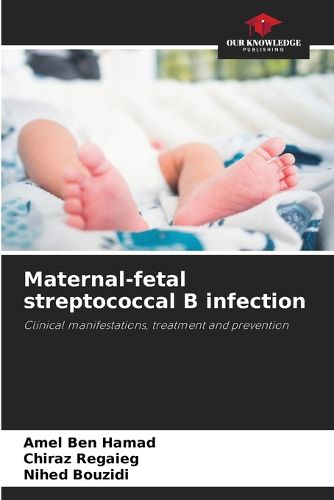Readings Newsletter
Become a Readings Member to make your shopping experience even easier.
Sign in or sign up for free!
You’re not far away from qualifying for FREE standard shipping within Australia
You’ve qualified for FREE standard shipping within Australia
The cart is loading…






Maternal-fetal infection with streptococcus B (or Streptococcus agalactiae) represents a major clinical challenge during pregnancy, for both mother and newborn. This pathogen, often present asymptomatically in the mother's genital tract, can be transmitted to the fetus during delivery, leading to serious complications such as neonatal sepsis, meningitis or pneumonia. To prevent these complications, screening and prophylactic treatment strategies are crucial. Routine screening of pregnant women for streptococcus B, usually between the 35th and 37th week of pregnancy, can identify asymptomatic carriers. In the event of a positive test, intravenous antibiotic prophylaxis during labor is usually administered to reduce the risk of transmission to the newborn. Proper management of this infection requires a multidisciplinary approach, involving obstetricians, pediatricians and infectious disease specialists, to ensure optimal care for both mother and baby.
$9.00 standard shipping within Australia
FREE standard shipping within Australia for orders over $100.00
Express & International shipping calculated at checkout
Maternal-fetal infection with streptococcus B (or Streptococcus agalactiae) represents a major clinical challenge during pregnancy, for both mother and newborn. This pathogen, often present asymptomatically in the mother's genital tract, can be transmitted to the fetus during delivery, leading to serious complications such as neonatal sepsis, meningitis or pneumonia. To prevent these complications, screening and prophylactic treatment strategies are crucial. Routine screening of pregnant women for streptococcus B, usually between the 35th and 37th week of pregnancy, can identify asymptomatic carriers. In the event of a positive test, intravenous antibiotic prophylaxis during labor is usually administered to reduce the risk of transmission to the newborn. Proper management of this infection requires a multidisciplinary approach, involving obstetricians, pediatricians and infectious disease specialists, to ensure optimal care for both mother and baby.